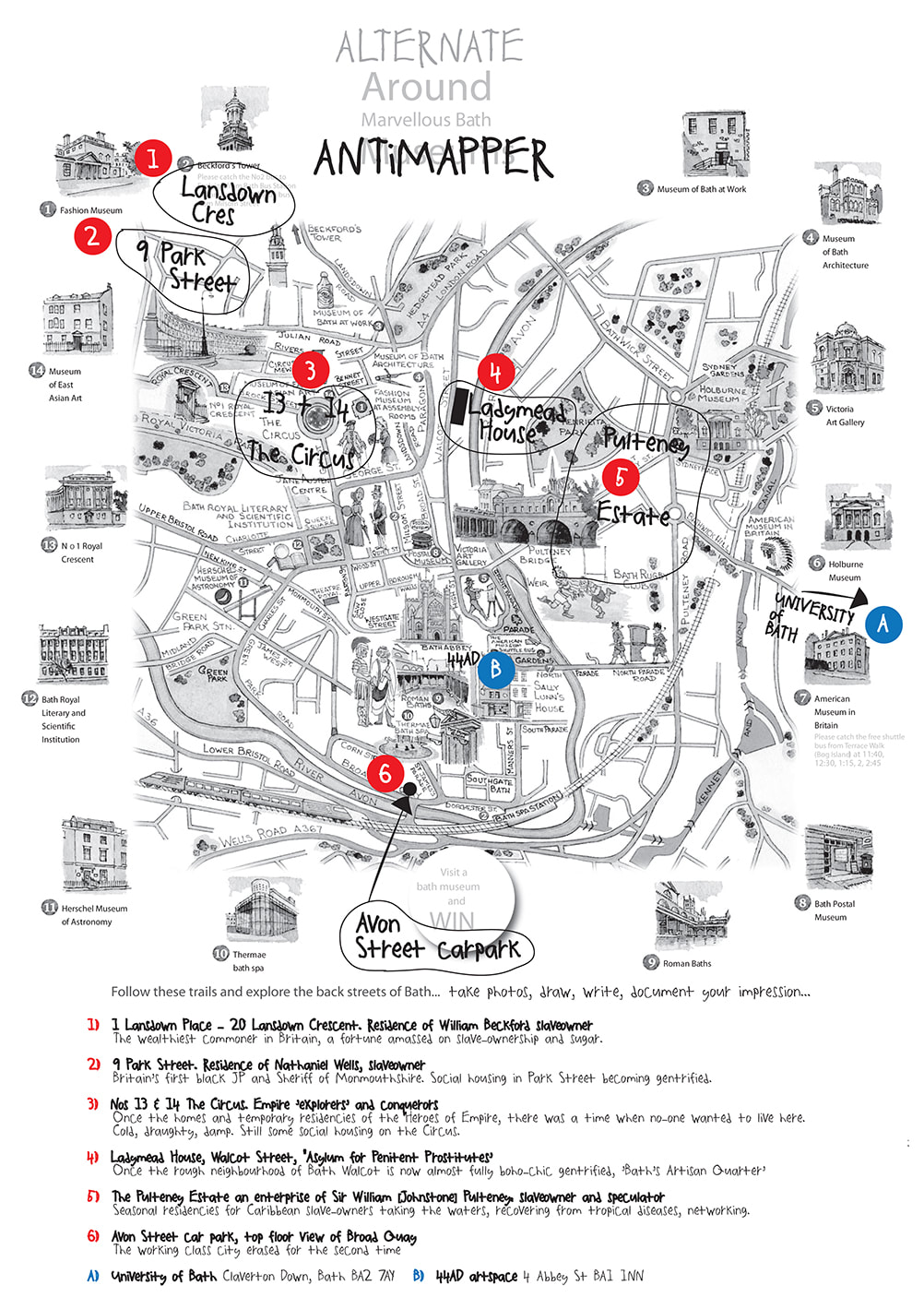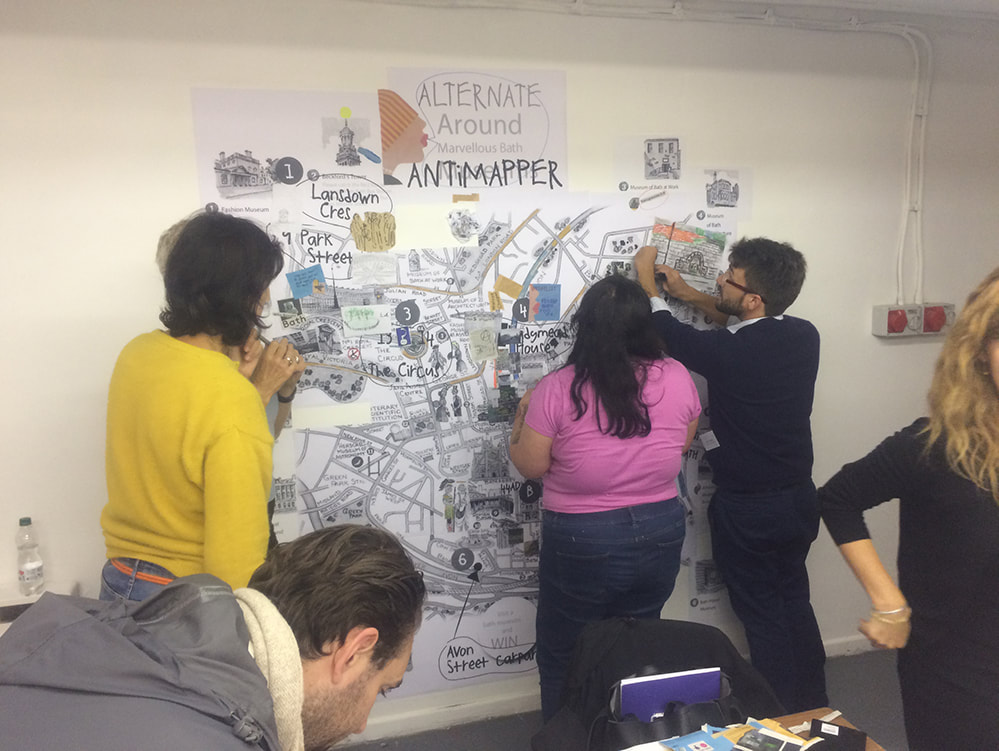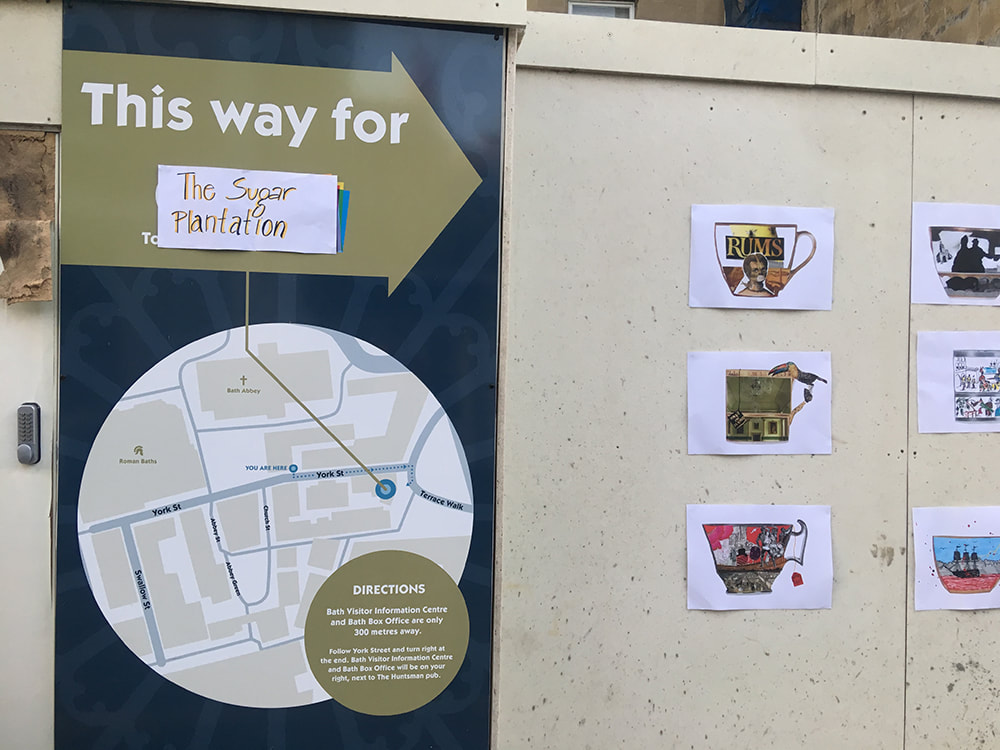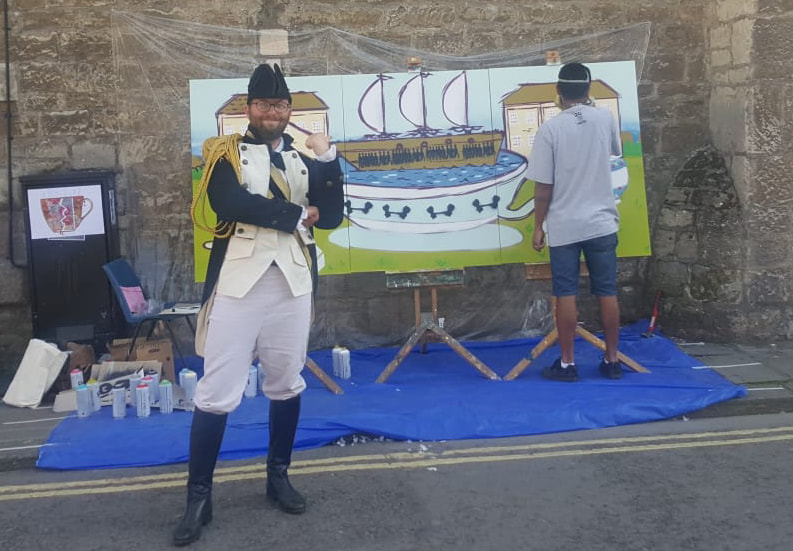Reshaping Memoryscapes in Bath and Bristol after the Fall of Colston....a call for contributions.12/15/2020 Following the amazing counter mapping workshop at 44AD artspace in Bath two years ago, the co-created storms in teacups and international street art work last year and the continuing resonances of the Sweet Waters project, I am collaborating on a publication with Dr Christina Horvath from the University of Bath. Attending to Legacies of Slave-ownership and Enslavement: Reshaping Memoryscapes in Bath and Bristol after the Fall of Colston Christina is Reader in French in the Department of Politics, Languages and International Studies, she co-hosted the international co-creation project to which I contributed strategies towards 'sensing legacies of slave-ownership'. With the fall of Colston there appears to have been a step change in activity both within the heritage institutions and outside, some may argue that that change was already underway, others may argue that the dead (white) silence is resilient and absorbent, that this storm will pass.... This proposed publication emerges from the questions and actions that have taken place in the months of the virus since the murder of George Floyd and the fall of Colston. We invite participation in extending, exploring and documenting the intensities, presences and absences of this moment. Deadline for abstracts and expressions of interest 15 Jan 2021. Details below. We are keen to embrace a range of responses from artists, academics, walkers, individuals and groups. Please share! A call for contributions The aftermath of the Colston toppling in summer 2020 has left us with a set of unanswered questions. How could Bristol’s and Bath’s historical connections with empire and the trade in, and wealth generated by captured and enslaved Africans be uncovered and made part of the official narratives? What should happen to monuments celebrating Britain’s legal slave owners and traders and how to break with the enduring ‘white silence’ in places like Bath where there is no statue to be removed and replaced? What is the role of a memorial today? Is erecting statues or monuments the most efficient way of making reluctant past visible in a city’s memoryscape? If silence is complicity, is acknowledging institutionally forgotten legacies of the slave trade sufficient to take responsibility for what happened in the past? Do references to the Abolitionist movement in Bath and Bristol and the anti-slavery movement and support for the Underground Railway in the USA risk obscuring white privilege and draw attention away from Black resistance? Are discussions about modern-day slavery and human trafficking a necessary part of the conversation about trans-Atlantic slavery legacies or rather a way to divert attention from past responsibilities and present-day inequalities? These are some of the current debates this collective volume seeks to engage with by looking at the most recent attempts to engage with colonial history in Bristol and Bath and explore the two cities’ links with the transatlantic trade in enslaved Africans. The volume, to be proposed to Policy Press, Bristol, aims to bring together researchers, artists, activists, institutions, teachers, curators and other stakeholders to reflect on both cities’ changing memoryscapes and various strategies enabling different communities and stakeholders to be part of the conversation. We are inviting contributions dealing, in particular, with the following questions: • How to avoid debates about the past that remain confined to the realms of experts, curators and administrators without involving in the conversation representatives of broader civil society? How can communities of stakeholders engage in collaboration with institutions and what are the pitfalls of often unequal dialogs with institutions? • What strategies should be adopted to make hidden connections with historic legacies of the trade in captured and enslaved Africans visible? What is the role of artists, researchers and activists in this process? How can unequal power relations between these groups be balanced and mitigated? • Is it possible to decolonise exhibits, buildings, institutions and memorials? How to present collections derived from a contested past to encourage fairer representations of the enslaved and promote more equal futures? • Whose story should be remembered and how should it be presented? How can museums critically reflect on their own histories and collections in collaboration with their audiences and stakeholders? • Can similar strategies be used to shape Bristol’s and Bath’s memoryscapes or should local differences be recognised to elaborate effective ways of engaging with the past? • How can young audiences be involved in the current debate? How can artistic or walking practices promote an active and democratic engagement? Contributions can be theoretical or arts- or practice-based. 250-word abstracts accompanied by a short biography should be sent to [email protected] and [email protected] by 15th January 2021. Accepted contributions should be submitted by September 30th 2021 https://www.co-creation-network.org/call-for-contributions-for-a-collective-volume
0 Comments
Your comment will be posted after it is approved.
Leave a Reply. |
Archives
February 2024
Categories
All
|
||||||




 RSS Feed
RSS Feed